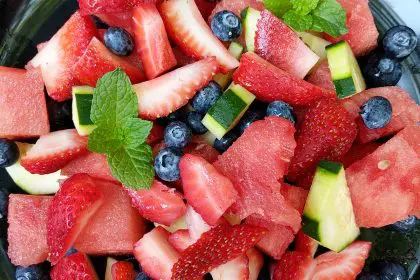The secret weapons against chronic disease may already be sitting in your kitchen, hiding within the colorful array of fruits, vegetables, nuts, and whole grains that line your pantry shelves. These powerful compounds, known as phytosterols or plant sterols, work quietly behind the scenes to protect your body from some of the most common health threats facing adults today.
Unlike synthetic medications or expensive supplements, phytosterols come naturally packaged in delicious, accessible foods that can easily become part of any daily eating routine. These plant-based compounds have evolved over millions of years to protect plants from environmental stressors, and when consumed by humans, they extend similar protective benefits to our cardiovascular system, metabolic processes, and overall health.
The beauty of phytosterols lies in their gentle yet effective approach to health improvement. Rather than dramatically altering body chemistry like pharmaceutical interventions, these natural compounds work harmoniously with existing biological processes to enhance the body’s natural defense mechanisms and optimize metabolic function.
Understanding how phytosterols function and which foods contain the highest concentrations empowers individuals to make informed dietary choices that support long-term health and vitality. The evidence supporting their benefits continues to grow, revealing multiple pathways through which these remarkable compounds protect against disease while promoting overall wellness.
1. Cholesterol levels drop significantly with regular consumption
Phytosterols excel at blocking dietary cholesterol absorption in the intestines, creating a natural barrier that prevents excess cholesterol from entering the bloodstream. This mechanism works by competing with cholesterol for absorption sites, effectively reducing the amount of harmful cholesterol that reaches circulation throughout the body.
The molecular structure of phytosterols closely resembles cholesterol, allowing them to occupy the same absorption pathways in the digestive system. When phytosterols fill these pathways, cholesterol gets pushed aside and eliminated from the body rather than being absorbed into the bloodstream where it can contribute to arterial plaque formation.
Regular consumption of phytosterol-rich foods can reduce LDL cholesterol levels by substantial amounts without the side effects associated with cholesterol-lowering medications. This natural approach to cholesterol management provides sustainable results that improve with consistent dietary implementation over time.
The cholesterol-lowering effects of phytosterols become more pronounced when combined with other heart-healthy dietary patterns. Foods rich in fiber, antioxidants, and healthy fats work synergistically with phytosterols to create comprehensive cholesterol management that addresses multiple aspects of cardiovascular health simultaneously.
2. Cardiovascular disease risk decreases through multiple protective mechanisms
Beyond cholesterol reduction, phytosterols provide cardiovascular protection through anti-inflammatory effects that help maintain healthy blood vessels. Chronic inflammation contributes significantly to heart disease development, and phytosterols help modulate inflammatory responses throughout the cardiovascular system.
Blood pressure regulation improves when phytosterols become a regular part of the diet. These compounds support healthy endothelial function, helping blood vessels maintain proper flexibility and responsiveness. This vascular support contributes to optimal blood pressure levels and reduced strain on the heart muscle.
Arterial health benefits from phytosterol consumption as these compounds help prevent the oxidation of cholesterol particles that leads to plaque formation. By protecting cholesterol from oxidative damage, phytosterols reduce the likelihood of arterial blockages that can cause heart attacks and strokes.
The cumulative effect of phytosterol consumption on cardiovascular health creates a protective environment that supports heart function across multiple biological pathways. This comprehensive protection addresses both immediate cardiovascular risks and long-term heart health maintenance.
3. Type 2 diabetes risk reduction occurs through improved metabolic function
Phytosterols influence insulin sensitivity and glucose metabolism in ways that help prevent the development of type 2 diabetes. These compounds support healthy blood sugar regulation by enhancing the body’s ability to process glucose effectively and maintain stable energy levels throughout the day.
Metabolic syndrome, a cluster of conditions that increase diabetes risk, responds favorably to phytosterol consumption. The compounds help address multiple components of metabolic syndrome simultaneously, including blood sugar levels, blood pressure, and abdominal fat accumulation.
Insulin resistance, a precursor to type 2 diabetes, improves when phytosterols become part of regular dietary intake. These plant compounds help restore insulin sensitivity, allowing cells to respond appropriately to insulin signals and maintain healthy glucose uptake.
The protective effects against diabetes extend beyond blood sugar control to include weight management support. Phytosterols may help regulate appetite and support healthy body composition, both crucial factors in diabetes prevention and overall metabolic health.
4. Gut microbiome health flourishes with phytosterol nourishment
The beneficial bacteria in the digestive system thrive when provided with phytosterols, particularly β-sitosterol, which serves as food for health-promoting microorganisms. This prebiotic effect helps maintain a balanced gut microbiome that supports digestion, immune function, and overall health.
Short-chain fatty acid production increases when gut bacteria metabolize phytosterols, creating compounds that provide energy for intestinal cells and support gut barrier function. These fatty acids also have systemic health benefits, influencing inflammation levels and metabolic processes throughout the body.
Digestive health improves as phytosterols support the growth of beneficial bacteria while helping control harmful microorganisms. This balanced approach to gut health creates an environment conducive to optimal nutrient absorption and waste elimination.
The gut-brain connection benefits from improved microbiome health supported by phytosterol consumption. A healthy gut microbiome influences mood, cognitive function, and stress response, creating far-reaching health benefits that extend well beyond digestive wellness.
5. Natural anti-inflammatory effects protect against chronic disease
Inflammation reduction occurs naturally when phytosterols become part of regular dietary intake. These compounds help modulate inflammatory responses throughout the body, preventing the chronic inflammation that contributes to numerous age-related diseases and health conditions.
Immune system function improves as phytosterols help balance inflammatory responses, ensuring that the immune system responds appropriately to threats without creating excessive inflammation that damages healthy tissues. This balanced immune response supports overall health and disease resistance.
Oxidative stress decreases when phytosterols provide antioxidant protection against free radical damage. This cellular protection helps prevent the oxidative damage that accelerates aging and contributes to various chronic diseases, from heart disease to certain types of cancer.
Joint health and mobility benefit from the anti-inflammatory effects of phytosterol consumption. Reduced inflammation in joints and connective tissues supports comfort and flexibility, particularly important for maintaining active lifestyles as individuals age.
6. Weight management becomes easier with metabolic support
Appetite regulation improves when phytosterols influence hormonal signals that control hunger and satiety. These compounds may help stabilize appetite hormones, making it easier to maintain appropriate portion sizes and avoid overeating that contributes to weight gain.
Fat metabolism receives support from phytosterol consumption, as these compounds influence how the body processes and stores dietary fats. This metabolic support can contribute to healthier body composition and more efficient energy utilization throughout the day.
Energy levels remain more stable when phytosterols help regulate blood sugar and metabolic processes. This stability reduces energy crashes that often lead to cravings for high-calorie foods, supporting consistent energy levels and healthier food choices.
Body composition improvements may occur as phytosterols support lean muscle maintenance while helping reduce excess body fat. This favorable change in body composition contributes to improved metabolic health and reduced risk of obesity-related diseases.
7. Cellular protection enhances longevity and vitality
DNA protection occurs as phytosterols provide antioxidant effects that help prevent cellular damage from environmental toxins and normal metabolic processes. This cellular protection supports healthy aging and may help prevent the genetic damage that contributes to various diseases.
Cell membrane integrity benefits from phytosterol incorporation, as these compounds help maintain healthy cell walls that protect against damage and support optimal cellular function. Healthy cell membranes are crucial for nutrient transport and waste removal at the cellular level.
Tissue repair and regeneration receive support from phytosterol consumption, as these compounds provide building blocks and protective factors that help the body maintain and repair tissues throughout life. This regenerative support becomes increasingly important with advancing age.
Overall vitality improves when phytosterols support multiple body systems simultaneously. The cumulative effect of cardiovascular protection, metabolic support, anti-inflammatory benefits, and cellular protection creates a foundation for sustained health and energy throughout the lifespan.
Top food sources deliver maximum phytosterol benefits
Nuts and seeds provide concentrated sources of phytosterols, with almonds, walnuts, pistachios, and sunflower seeds leading the list. A handful of mixed nuts daily can provide significant amounts of these beneficial compounds while also delivering healthy fats, protein, and fiber.
Vegetable oils, particularly those from nuts and seeds, contain high concentrations of phytosterols. Olive oil, avocado oil, and cold-pressed nut oils provide these compounds along with other beneficial nutrients that support overall health.
Whole grains deliver phytosterols along with fiber, B vitamins, and other nutrients that work synergistically to support health. Brown rice, quinoa, oats, and whole wheat products provide these compounds in their natural context with complementary nutrients.
Fresh fruits and vegetables contribute phytosterols along with vitamins, minerals, and antioxidants that enhance their health benefits. Broccoli, cauliflower, Brussels sprouts, and leafy greens are particularly rich sources that can be easily incorporated into daily meals.
Practical strategies for increasing phytosterol intake
Meal planning that emphasizes plant foods naturally increases phytosterol consumption while providing diverse nutrients and flavors. Building meals around vegetables, whole grains, and plant proteins creates multiple opportunities to consume these beneficial compounds throughout the day.
Snacking on nuts and seeds provides convenient phytosterol boosts between meals while delivering sustained energy and satisfaction. Keeping a variety of raw nuts and seeds readily available makes it easy to choose these healthy options over processed snacks.
Cooking with plant-based oils instead of butter or other animal fats increases phytosterol intake while providing healthy fats for cooking and flavor enhancement. Using olive oil for salad dressings and cooking adds these compounds to virtually any meal.
Food combinations that pair phytosterol-rich foods with other health-supporting ingredients maximize nutritional benefits. Combining nuts with fruits, vegetables with healthy oils, and whole grains with legumes creates synergistic effects that enhance overall health impact.
Sustainable dietary changes for long-term benefits
Gradual implementation of phytosterol-rich foods prevents dietary overwhelm while allowing taste preferences to adapt naturally. Starting with small additions and gradually increasing plant food consumption creates sustainable changes that become permanent lifestyle improvements.
Variety in phytosterol sources prevents dietary boredom while ensuring exposure to different types of these beneficial compounds. Rotating through different nuts, seeds, grains, and vegetables provides nutritional diversity and keeps meals interesting and enjoyable.
Seasonal eating patterns that emphasize locally available plant foods provide natural variety in phytosterol sources while supporting environmental sustainability and often reducing food costs. This approach aligns health benefits with ecological responsibility.
Long-term consistency in consuming phytosterol-rich foods provides cumulative health benefits that compound over time. The protective effects of these compounds increase with regular consumption, making consistent dietary patterns more important than perfect adherence to specific recommendations.
The remarkable health benefits of phytosterols demonstrate the power of food as medicine, offering natural protection against chronic diseases through simple dietary choices. By understanding which foods provide these compounds and incorporating them regularly into daily eating patterns, individuals can harness the disease-fighting power of plants to support lifelong health and vitality.














